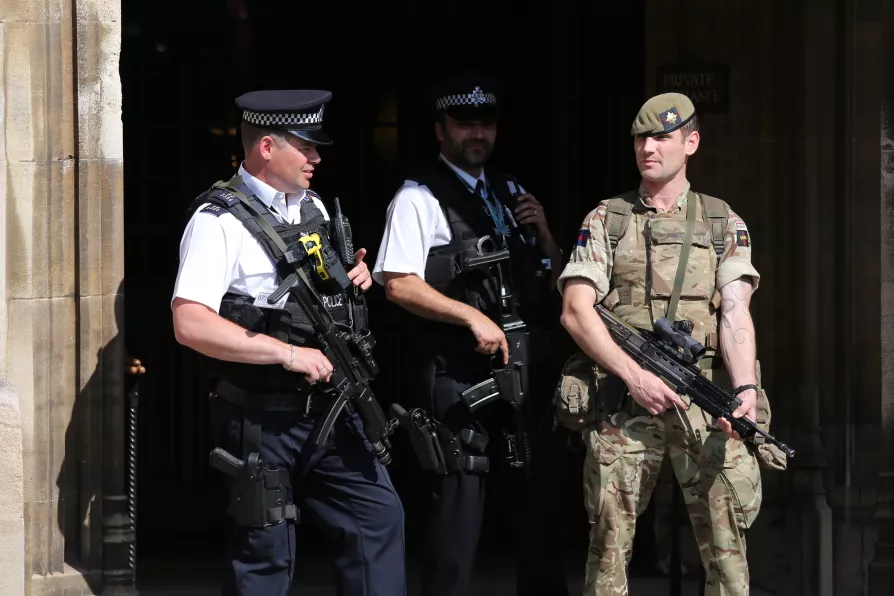MATTHEW HAWKINS contrasts the sinister enchantments of an AI infused interactive exhibition with the intimacies disclosed by two real artists
Deep state of anxiety
Richard Norton-Taylor's book on the secret intelligence services raises worrying questions about their intentions and fitness for purpose, says JOE GILL

 PROTECTING THEIR OWN: Armed guard outside Parliament following the 2017 Manchester Arena bombing by Salman Abedi, previously assisted by the security services
[Katie Chan/Creative Commons]
PROTECTING THEIR OWN: Armed guard outside Parliament following the 2017 Manchester Arena bombing by Salman Abedi, previously assisted by the security services
[Katie Chan/Creative Commons]
The State of Secrecy: Spies and the Media in Britain
by Richard Norton-Taylor
(IB Tauris, £20)
IN 1985 my late father Ken Gill had a meeting with Cathy Massiter, a whistleblower from GCHQ, Britain’s eavesdropping centre in Cheltenham.
As he told me afterwards, Massiter recited a personal conversation between him and his sister that, word for word, took place at our home. It was entirely mundane and proof of the fact that our house had been bugged by the security services and that GCHQ was listening in.
Similar stories

Ben Cowles speaks with IAN ‘TREE’ ROBINSON and ANDY DAVIES, two of the string pullers behind the Manchester Punk Festival, ahead of its 10th year show later this month

This is poetry in paint, spectacular but never spectacle for its own sake, writes JAN WOOLF

RON JACOBS welcomes the long overdue translation of an epic work that chronicles resistance to fascism during WWII

JOHN GREEN surveys the remarkable career of screenwriter Malcolm Hulke and the essential part played by his membership of the Communist Party










